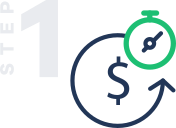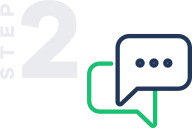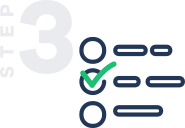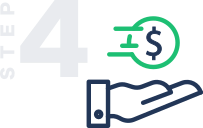› Industries › Private Education Schools




United Capital Source has many years of experience facilitating Small Business Loans for Private Education Centers across America. Contact us today for your FREE business funding consultation!
The educational path for many children and young adults isn’t as simple as it was for generations past. They don’t just go to one elementary school, high school, or attend a traditional university. Additional resources are required to meet their unique needs or foster their talents. This is the purpose of private learning institutions, including music, aviation, cooking, driving, and increasingly popular trade schools. Many parents are interested in the superior educational opportunities offered by private schools.
The heightened demand for private learning institutions cannot be satisfied without sufficient funding. Obtaining significantly more equipment and learning materials, all of which must be up-to-date so students can apply their skills in the real world, is especially costly for schools that prepare students for careers in fields like manufacturing or computer science. Should the ongoing demand for their services increase any further, it’s safe to say many private learning institutions will likely be forced to find larger physical spaces.
However, despite the aforementioned increase in popularity, many parents are still unaware of today’s institutions’ capabilities and accessibility. Therefore, these businesses must ramp up their marketing efforts so parents can understand their children’s education options.

Taxpayer dollars do not fund private schools. Private education businesses rely primarily on tuition for funding. Since private learning institutions are known for having limited funds, they might assume their options for small business loans are slim. Loans can provide the necessary working capital to support various business needs.
At United Capital Source, however, we work with myriad businesses facing similar predicaments. Private schools, like other small businesses, must meet specific requirements. Borrowers do not have to be heavily capitalized, nor does their cash flow have to be perfectly consistent throughout the year.
While many businesses may qualify for SBA loans, not all will due to stricter criteria. This allows us to facilitate various types of business loans when clients are in their slow seasons but must prepare for upcoming busy periods, such as the beginning of a school’s first semester.
We also understand that the most significant investments of private learning institutions (equipment, apprenticeships, property) do not immediately produce revenue that could be used to pay off the debt. Our famously flexible terms can be adjusted so the business is not expected to make substantial payments immediately. Extensive marketing campaigns, for example, will bring in more students over time. A solid track record of success can enhance a borrower’s position when applying for loans. We may be able to negotiate a repayment system that bases payments on the number of students enrolled at different periods. Business owners must provide a personal guarantee.
Some of the most successful private learning institutions are franchises like Mathnasium. However, the cost of opening a new center is much higher than when the first Mathnasiums were opened nearly 20 years ago. This is why UCS offers special franchise business loans to help cover numerous operating and expansion costs, such as the notoriously outrageous “franchise fee.”
Franchises can find themselves in cash flow crunches due to factors like seasonality, required refurbishments, and mandatory marketing deductions. When multiple expenses pile up simultaneously, our franchise business loans can save you from digging too far into operational funding or endangering profitability. Mandatory expenses aren’t always imposed at the most convenient time, but we can help you cover them and repay the debt when it is most convenient for your financial cycle. Apply now to see how much you qualify for!

Private schools primarily rely on tuition for funding, unlike public schools, which are funded by taxpayer dollars. Private schools have been experiencing an increase in enrollment as parents demand more innovative learning environments. However, relying on tuition alone may be insufficient to invest in growth that meets the growing demand, leaving many institutions seeking lending solutions. In addition, private education institutions may face financial challenges due to reliance on tuition during economic downturns.
Private schools face unique challenges when securing funding, and many businesses, including private schools, need specialized financial solutions. Financing is essential for enabling institutions to expand operations, but contributions from investors often fall short of the necessary funding.
Unlike public schools, which are funded by taxpayer dollars, private schools rely on tuition and other sources of revenue to operate. This reliance can limit their ability to invest in new facilities, technology, and other resources that can enhance the learning experience. These institutions often require flexible financing options for immediate working capital needs and long-term investments.
Fortunately, several funding options are available to private schools, including SBA loans, cash flow loans, and other forms of financing. These options can provide the necessary cash flow to support various business needs, from expanding facilities to investing in state-of-the-art technology. By exploring these funding avenues, private schools can ensure they have the resources to offer a top-notch education and stay competitive in the ever-evolving educational landscape.
Bank loans, credit cards, and friends/family are common funding sources for private education businesses. However, many institutions cannot access these sources and focus instead on alternative business loans.

Private schools and learning centers are eligible for small business loans, which can be used to purchase real estate, invest in new equipment and technology, and cover other expenses. Tuition hikes are often used to offset costs during economic downturns. However, this can lead to decreased enrollment as fewer parents or adult learners can afford the increase, leaving educational businesses to seek loan solutions.
Financial institutions often offer construction loans for private schools under specific conditions. Some lenders offer cash flow loans and other forms of financing tailored to the unique needs of private education.
These financing options can help schools manage their cash flow, invest in necessary improvements, and ensure they have the resources to provide a high-quality education. Lenders may require a strong business track record to qualify for 100% financing for expansions.
Institutions can obtain credit by meeting specific criteria. Tailored funding programs are available for private schools, and many lenders do not require any assets as collateral.
Potential options include:
Business Term Loans: Traditional term loans offer a lump sum of capital paid back with regular repayments at a fixed interest rate.
Working Capital Loans: Unsecured working capital loans help businesses maintain daily operations during lapses in cash flow.
Equipment Financing: Educational businesses seek innovative and tech-savvy learning environments to attract parents. Equipment loans can provide the funding to upgrade equipment to meet this demand.
Merchant Cash Advance: Merchant cash advances provide fast cash based on future credit card revenues. These days, the qualification criteria are based on total revenues and not just credit card sales.
Funding solutions are not one-size-fits-all and need to be tailored to each private school’s specific needs. Funding options can help private schools invest in larger assets like new facilities and technology, alleviating financial challenges and supporting their growth and development. Payments work differently during various financing scenarios.
The Small Business Administration (SBA) offers several loan programs that can support private education, including the SBA 7(a) and SBA 504 loans. These loans provide favorable interest rates and flexible repayment terms, making them an attractive option for private schools and learning centers.
SBA loans feature lower fees compared to other financing methods, which can make a considerable difference for schools undertaking substantial development projects. The loan proceeds can be used for specific expenses, such as obtaining significantly more equipment.
Both SBA 7(a) and SBA 504 loans can be used by private schools to acquire essential equipment and refinance debt. Working capital can be financed through both SBA 7(a) loans and SBA 504 loans.
SBA 504 loans can provide up to $5 million in funding for small businesses. SBA 504 loans can be used to purchase real estate, develop land, construct buildings, and buy necessary equipment. Applying for an SBA 504 loan requires a business plan and financial projections. SBA 504 loans have lower interest rates and down payment requirements than SBA 7(a) loans. The SBA 504 loan program supports long-term investments in real estate and significant assets. Only for-profit private schools are eligible for SBA financing, while non-profit organizations can seek funding from non-SBA sources.
SBA loans can be used to refinance existing debts. Financial assistance is available for institutions in declared disaster areas.
Private schools and educational institutions must meet certain requirements to be eligible for an SBA loan. These include being a for-profit business, having a good credit history, and demonstrating a need for the loan.
Additionally, the business must be able to repay the loan, and the lender must be confident in the business’s ability to do so. The SBA also requires companies to have enough money to cover their expenses, including loan repayment, and a solid business plan. On the other hand, nonprofit organizations may be eligible for different forms of financing, such as grants and donations, which can provide the necessary funds without the need for repayment.
Applying for an SBA loan can be a complex process. Still, it can be made easier by working with a lender experienced in financing private schools and educational institutions. The lender will require a range of documentation, including financial statements, tax returns, and a business plan.
Additionally, the lender will require a personal guarantee from the business owner, which can be risky if the business cannot repay the loan. However, the benefits of an SBA loan, including favorable interest rates and flexible repayment terms, can make it an attractive option for private schools and educational institutions looking to invest in new facilities, equipment, and technology. Some lenders may also offer prepayment penalty waivers or other benefits, further enhancing the appeal of these loans.
Private schools often face challenges when seeking financing from traditional banks. Many businesses in this industry cannot acquire conventional business loans.
But this doesn’t have to be bad news. Some lenders might consider applications from institutions with bad credit.
Bad credit business loans often have higher interest rates and shorter terms. They can provide bridge financing until the institution qualifies for more advantageous business loans. Choosing the right loan option makes sense for the institution’s financial health.
Taxpayer dollars do not fund private schools. Private education businesses rely primarily on tuition for funding. Since private learning institutions are known for having limited funds, they might assume their options for small business loans are slim. Loans can provide the necessary working capital to support various business needs.
At United Capital Source, however, we work with myriad businesses facing similar predicaments. Private schools, like other small businesses, must meet specific requirements. Borrowers do not have to be heavily capitalized, nor does their cash flow have to be perfectly consistent throughout the year.
We also understand that the most significant investments of private learning institutions (equipment, apprenticeships, property) do not immediately produce revenue that could be used to pay off the debt. Our famously flexible terms can be adjusted so the business is not expected to make substantial payments immediately.
Extensive marketing campaigns, for example, will bring in more students over time. A solid track record of success can enhance a borrower’s position when applying for loans. We may be able to negotiate a repayment system that bases payments on the number of students enrolled at different periods. Business owners must provide a personal guarantee.
According to IBIS World, the U.S. private school industry is projected to reach a market size of $79.3 billion in 2025, with more than 25,000 active institutions nationwide.
According to the Learning Policy Institute, 34 states had implemented voucher programs that help parents cover the cost of private school tuition as of January 2025.
According to the National Center for Educational Statistics, private schools tend to have smaller student populations than public schools, with more than 44% enrolling fewer than 300 students.
Private schools and learning centers are eligible for small business loans, which can be used to purchase real estate, invest in new equipment and technology, and cover other expenses. Tuition hikes are often used to offset costs during economic downturns. However, this can lead to decreased enrollment as fewer parents or adult learners can afford the increase, leaving educational businesses to seek loan solutions.
Financial institutions often offer construction loans for private schools under specific conditions. Some lenders offer cash flow loans and other forms of financing tailored to the unique needs of private education.
These financing options can help schools manage their cash flow, invest in necessary improvements, and ensure they have the resources to provide a high-quality education. Lenders may require a strong business track record to qualify for 100% expansion financing.
Institutions can obtain credit by meeting specific criteria. Tailored funding programs are available for private schools, and many lenders do not require any assets as collateral.
Potential options include:
Business Term Loans: Traditional term loans offer a lump sum of capital paid back with regular repayments at a fixed interest rate.
Working Capital Loans: Unsecured working capital loans help businesses maintain daily operations during lapses in cash flow.
Equipment Financing: Educational businesses seek innovative and tech-savvy learning environments to attract parents. Equipment loans can provide the funding to upgrade equipment to meet this demand.
Merchant Cash Advance: Merchant cash advances provide fast cash based on future credit card revenues. These days, the qualification criteria are based on total revenues and not just credit card sales.
Funding solutions are not one-size-fits-all and must be tailored to each private school’s needs. Funding options can help private schools invest in larger assets like new facilities and technology, alleviating financial challenges and supporting their growth and development. Payments work differently during various financing scenarios.
| FUNDING TYPES | MAX AMOUNTS | STARTING COSTS | SPEED |
|---|---|---|---|
| Merchant Cash Advances | $5k – $5m | Starting at 1-6% p/mo | 1-2 business days |
| SBA Loan | $50k - $10m | Starting at Prime Rate + 1% | 4 -12 weeks |
| Business Term Loan | $5k - $10m | Starting at 1-4% p/mo | 1-3 business days |
| Business Line of Credit | $1k - $1m | Starting at 1% p/mo | 1-3 business days |
| Receivables/Invoice Financing | $10k - $25m | Starting at 1% p/mo | 1-2 weeks |
| Equipment Financing | Up to $10m per piece | Starting at Prime Rate + 1% | 3 -10+ business days |
| Revenue Based Financing | $10K – $5m | Starting at 1-6% p/mo | 1-2 business days |
Securing a business loan can be a transformative step for private schools and learning centers aiming to enhance their educational offerings and operational efficiency. Here are some key advantages:
Access to capital enables institutions to renovate existing facilities, construct new buildings, and expand campus infrastructure. This growth accommodates increasing enrollment and provides students with state-of-the-art learning environments.
Business loans can fund the acquisition of educational technology, such as interactive whiteboards, tablets, and learning management systems. Integrating these tools supports personalized learning, boosts student engagement, and fosters digital literacy skills.
With adequate financing, schools can invest in attracting and retaining top-tier educators by offering competitive salaries and benefits. Additionally, funds can be allocated for professional development programs, ensuring faculty members stay abreast of the latest teaching methodologies.
Loans provide the resources to develop and implement innovative curriculum initiatives, such as STEM programs, arts integration, and project-based learning. These enhancements enrich the student learning experience and prepare them for future academic and career success.
Working capital loans offer financial stability, allowing schools to manage day-to-day operations effectively. This includes covering payroll, utility bills, and other essential expenses, ensuring uninterrupted educational services.
Investing in marketing campaigns can increase visibility and attract new students. Business loans can fund these initiatives, helping schools reach a broader audience and boost enrollment numbers.
While business loans can significantly benefit private schools and learning centers, there are potential drawbacks to consider:
Loan repayments can place pressure on a school’s budget, especially during periods of low enrollment or seasonal lulls. Institutions must maintain payments without compromising essential services or staff salaries.
Interest rates can vary depending on the lender and the school’s financial profile. Over time, interest payments add to the total cost of borrowing, particularly for long-term or high-risk loans.
Not all educational institutions, especially newer or smaller centers with limited credit history or inconsistent cash flow, may qualify for financing. Documentation requirements and underwriting processes may also be time-consuming.
Some loan products may require collateral, such as school property or equipment. In some instances, school owners may also need to provide personal guarantees, which could put personal assets at risk if the business cannot repay the loan.
Taking on too much debt without a clear plan for repayment or return on investment can hinder long-term sustainability. Schools must assess how the loan fits into their broader financial strategy.
Pros:
Cons:
The amount of paperwork required depends on the product you choose. Funds can be approved and distributed for most products within 1-3 business days. Here’s how to apply
The first step is choosing the most sensible solution to the problem at hand. This should require some research, as each product is designed for different types of expenses and cash flow cycles. Are you looking to cover a short-term or long-term expense? Is demand expected to increase or decrease in the coming months?
Considering the funds’ purpose will also help us determine the correct borrowing and terms for your needs.
Here are the documents and information required for Private Education & Learning Center Loans:
SBA Loans require additional documents and information, such as financial statements. To learn what’s needed for the SBA-backed loans, visit our SBA Loan page.
You can begin the application process by calling us or filling out our one-page online application. Either way, you’ll be asked to enter the information from the previous section along with your desired funding amount.
Once you apply, a representative will contact you to explain the repayment structure, rates, and terms of your available options. This way, you won’t have to worry about any surprises or hidden fees during repayment.
If you’re approved, we’ll contact you within 24 hours. After closing, funds for most business financing products should appear in your bank account within 24 hours to one week.
Your business loan isn’t just a way to get financing for your business. It’s also an excellent opportunity to start building (or improving) your credit.
Regardless of the type of business loan you get, make all your required payments on time and in full. If you get a business credit line or another form of revolving credit, keep your balance below the credit limit.
Consistently making your business financing payments on time and in full will positively impact your credit. And that means preferred rates and terms when you next need business financing.
If your application is declined, it’s possible that you applied for the wrong product to meet your cash flow needs. We would likely recommend a different product with a less hazardous repayment structure in this case.
Your application might also be declined if it is determined that you cannot afford to take on more debt at this time.
If your credit score is holding you back from accessing financing, consider working with a reputable credit repair service to raise your scores.
Private schools primarily rely on tuition for funding, unlike public schools, which are funded by taxpayer dollars. Private schools have been experiencing an increase in enrollment as parents demand more innovative learning environments. However, relying on tuition alone may be insufficient to invest in growth that meets the growing demand, leaving many institutions seeking lending solutions. Additionally, private education institutions may face financial challenges due to their reliance on tuition during economic downturns.
Private schools face unique challenges when securing funding, and many businesses, including private schools, need specialized financial solutions. Financing is essential for enabling institutions to expand operations, but contributions from investors often fall short of the necessary funding.
Unlike public schools, which are funded by taxpayer dollars, private schools rely on tuition and other revenue sources to operate. This reliance can limit their ability to invest in new facilities, technology, and other resources that can enhance the learning experience. These institutions often require flexible financing options for immediate working capital needs and long-term investments.
Fortunately, several funding options are available to private schools, including SBA loans, cash flow loans, and other forms of financing. These options can provide the necessary cash flow to support various business needs, from expanding facilities to investing in state-of-the-art technology. By exploring these funding avenues, private schools can ensure they have the resources to offer a top-notch education and stay competitive in the ever-evolving educational landscape.
Bank loans, credit cards, and funds from friends and family are common funding sources for private education businesses. However, many institutions cannot access these sources and focus instead on alternative business loans.
The Small Business Administration (SBA) offers several loan programs that can support private education, including the SBA 7(a) and SBA 504 loans. These loans provide favorable interest rates and flexible repayment terms, making them an excellent option for private schools and educational centers.
SBA loans feature lower fees compared to other financing methods, which can make a considerable difference for schools undertaking substantial development projects. The loan proceeds can be used for specific expenses, such as acquiring additional equipment.
Both SBA 7(a) and SBA 504 loans can be used by private schools to acquire essential equipment and refinance debt. Working capital can be financed through both SBA 7(a) loans and SBA 504 loans.
SBA 504 loans can provide up to $5 million in funding for small businesses. They can be used to purchase real estate, develop land, construct buildings, or buy necessary equipment. Applying for an SBA 504 loan typically requires a comprehensive business plan and detailed financial projections.
SBA 504 loans offer lower interest rates and more lenient down payment requirements than SBA 7(a) loans. The SBA 504 loan program supports long-term investments in real estate and significant assets. Only for-profit private schools are eligible for SBA financing, while non-profit organizations can seek funding from non-SBA sources.
SBA loans can be used to refinance existing debts. Financial assistance is available for institutions in declared disaster areas.
Private schools and educational institutions must meet specific requirements to qualify for an SBA loan. These include being a for-profit business, having a good credit history, and demonstrating a need for the loan.
Additionally, the business must be able to repay the loan, and the lender must be confident in the business’s ability to do so. The SBA also requires companies to have sufficient funds to cover their expenses, including loan repayment, and a well-defined business plan. On the other hand, nonprofit organizations may be eligible for various forms of financing, such as grants and donations, which can provide the necessary funds without requiring repayment.
Applying for an SBA loan can be a complex process. Still, it can be made easier by working with a lender experienced in financing private schools and educational institutions. The lender will require a range of documentation, including financial statements, tax returns, and a business plan.
Additionally, the lender will require a personal guarantee from the business owner, which can be a risk if the business cannot repay the loan. However, the benefits of an SBA loan, including favorable interest rates and flexible repayment terms, can make it an attractive option for private schools and educational institutions looking to invest in new facilities, equipment, and technology. Some lenders may also offer prepayment penalty waivers or other benefits, further enhancing the appeal of these loans.
Private schools often face challenges when seeking financing from traditional banks, as many businesses in this industry struggle to obtain conventional business loans.
But this doesn’t have to be bad news. Some lenders might consider applications from institutions with bad credit.
Bad credit business loans often have higher interest rates and shorter terms. They can provide bridge financing until the institution qualifies for more advantageous business loans. Choosing the right loan option makes sense for the institution’s financial health.


